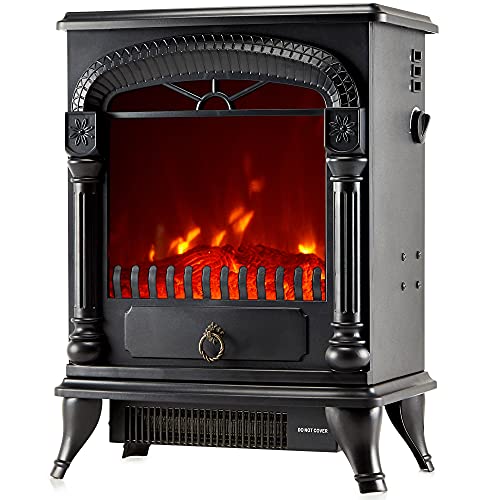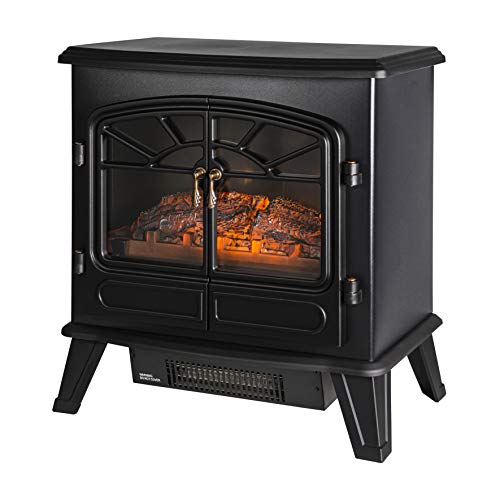The Reasons Stoves Electric Is Everywhere This Year
작성자 정보
- Patricia Rosale… 작성
- 작성일
본문
 Why Stoves Electric Are the Green Choice
Why Stoves Electric Are the Green ChoiceOne Brooklyn co-op recently replaced its 49 gas stoves with electric stoves, which include both radiant and induction models. The switch will reduce the cost for the co-op and will eliminate expensive gas line repairs, inspections and Local Law 97 requirements.
Electric stoves do not release harmful emissions or carbon dioxide unlike gas stoves. The energy to power your electric stove comes from renewable sources like solar or wind.
They are more secure
In the past many homeowners have been wary of replacing their gas stove with an electric model. This fear is a result of the hysteria created by politicians and pundits who claimed that bureaucrats from the government were threatening to pull gas stoves off their walls. However, the truth is that there are a lot of advantages to switching to electric over gas. These include a sleek design and a lower price at the start. Furthermore, they are easier to clean and more energy efficient.
According to consumer reports, gas stoves release pollutants which are detrimental to health. These pollutants irritate airways and can cause asthma to worsen especially for children. They also contribute to the greenhouse gas emissions and outdoor pollution. This has led to increasing concerns about the risks of gas stoves, and some municipalities are limiting their use in new construction homes. As a result, more people are choosing to install electric stoves in their homes.
Gas stoves can be more expensive to operate than electric stoves since they require gas pipes and are less energy-efficient. They are also susceptible to breakdowns and need regular maintenance. Electric stoves, on other hand are more reliable and energy efficient. They can also be used in power outages and have a more precise temperature control. They are also easier to clean since they do not have grates which can become clogged up with food particles.
It is ultimately the homeowner's responsibility to choose which stove to use in their own home. It is important to keep in mind that electric stoves are most well-known. However, the choice should be based on personal preferences and home set-up.
Electric stoves come in three different types: glass-top, coil-top and induction. The first two stoves are similar because they both use 120 volts for heating their burners. However, induction stoves are different from traditional Realistic electric Wood stove stoves due to the fact that they utilize magnetic technology to heat cookware, instead of using metal coils. Induction stoves are more expensive than coil stoves, but they are also more efficient in energy use.
They are more efficient
There are many reasons to change from gas stoves to an electric one with the most important being their higher efficiency. The initial cost is higher but electric stoves can save money over time because of their lower operating costs. They also have a lower carbon footprint. This makes them an excellent option for green homes.
Stoves that run on electricity are also more ecologically sustainable than gas stoves. Electric stoves make use of electricity produced by renewable sources, such as solar or wind power, while gas stoves rely on natural gas that can be obtained through Fracking. Furthermore electric stoves fires stoves do not emit any of the combustion byproducts gas stoves emit.
The click, hiss and glow of the blue flame could remain appealing to many cooks. However, it has hidden costs for both humans and the environment. Numerous studies have shown that natural gas stoves are harmful to the human body and the environment. Fortunately, top chefs such as Tu David Phu are turning to electric stoves and encouraging others to follow suit.
With a gas stove the energy that produces the blue flame is released into the atmosphere and contributes to heat-trapping emissions that lead to climate change. The reason is because natural gas must be extracted from the earth, and methane is released into the air in the process. Methane leaks are also common at every step of the supply chain from production to delivery.
When cooking on a gas stove, the chemical combustion products of the natural gas burn creating ultrafine particulates and gases into the air. These pollutants can cause irritation and can increase asthma symptoms, especially in children. In addition, the combustion of gas creates nitrogen oxide, which aggravates respiratory problems and can be poisonous if breathed.
Electric stoves, on the contrary are not releasing these substances into the air. While the electricity that powers electric stoves could be derived from coal, advancements in wind and solar energy have made this a more sustainable choice. In addition, the new generation of electric cooktops is so efficient that they not only reduce your household bills but also reduce your carbon footprint.
 They are less expensive
They are less expensiveElectric stoves are generally less expensive than those powered by gas. Electric stoves are less expensive upfront and have lower operating costs because of their efficient technology. They can also be used in the event of a power failure. They are also safer to use, as they operate using burner surfaces or heated coils rather than open flames. This feature is particularly beneficial in households where children could be tempted by knobs or their hands on hot areas.
Electric stoves are also simpler to clean. Instead of having multiple grates, they have a single, smooth surface that is easy to clean. Additionally, you can gauge the heat on dials to know precisely how hot to cook. This could be a disadvantage because it could take time to adjust to the level of heat.
Gas stoves also release pollutants that can be detrimental to health. While the gas industry claims that these emissions are safe but federal agencies are real looking electric log burners into more stringent regulations that could reduce their impact on the quality of indoor air and climate change. These potential changes may lead to a ban on gas stoves in the future.
Gas stoves need a gas line in order to function, and many homeowners don't have one. It is possible to put in one new however, it can be time-consuming and costly. Meanwhile, electric stoves only need a power outlet, which is what most homes already have. They are an excellent choice for older homes and those with a tighter budget.
A lot of people are eligible for rebates, such as on stoves that are energy efficient. This program is part of IRA's High-Efficiency Electric Home Rebate. It's not yet launched, but will be accessible in the majority of states by close of the year. These rebates make switching to an electric cooktop less expensive for a large number of consumers. Additionally, electric stoves are less expensive than gas stoves in the long run and can also help reduce household energy costs.
The products are environmentally friendly
When it comes to lowering carbon emissions, stoves electric are the best option. Gas stoves release harmful poisons like carbon monoxide nitrogen dioxide, and benzene that are associated with health issues like dizziness, headaches, confusion, nausea and breathing difficulties. They also contribute to indoor pollution, which is related to a higher incidence of asthma in children.
Thankfully, these issues are driving gas stoves out of homes in favor of more efficient electric cooktops. Electric ranges are not just more affordable to run than gas stoves but they are also more sustainable for the earth. In contrast to gas stoves, which rely on natural gas, electric stoves be powered by renewable electricity sources. This makes them an eco-friendly choice for any household.
Another benefit of an electric stove is its safety. Because they don't have an open flame, they are more secure than gas stoves, and don't generate as much smoke. They can also cook larger meals such as stockpots, quicker and more evenly than gas stoves. The electric stove coils cool quicker than the gas stove. This ensures that pans and pots will not catch fire, which is important for families with children or elderly residents.
The main reason to switch to an electric stove is that it's eco friendly. While it's true that the energy used to power an electric stove comes from fossil fuels but this isn't as bad as it may sound. In reality, it's an extremely safe form of energy than oil or coal. In addition, you can obtain the electricity needed to power your stove with solar or wind power both of which are renewable sources of energy.
While the government doesn't have any regulations on the indoor air pollution emitted by gas stoves, many cities have banned gas hookups for new construction. The government is also offering billions of dollars in rebates to encourage customers to switch to electric fires log burner effect stoves. Electric stoves are now more affordable and well-known due to these incentives, along with improved green technology.
관련자료
-
이전
-
다음작성일 2024.11.27 05:15
댓글 0
등록된 댓글이 없습니다.
